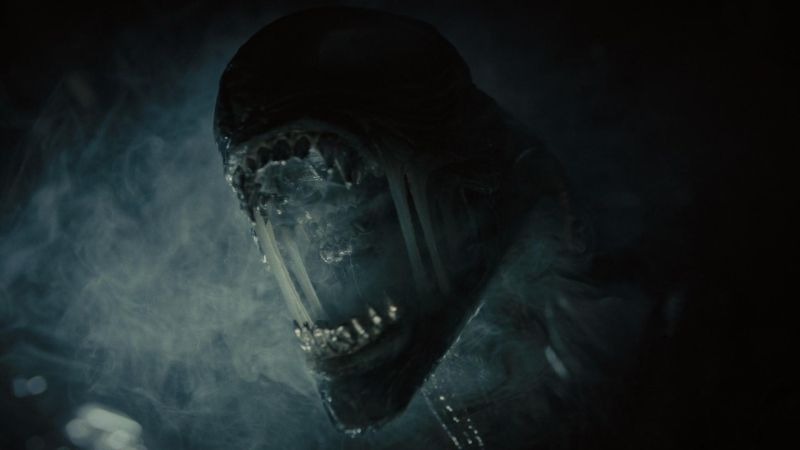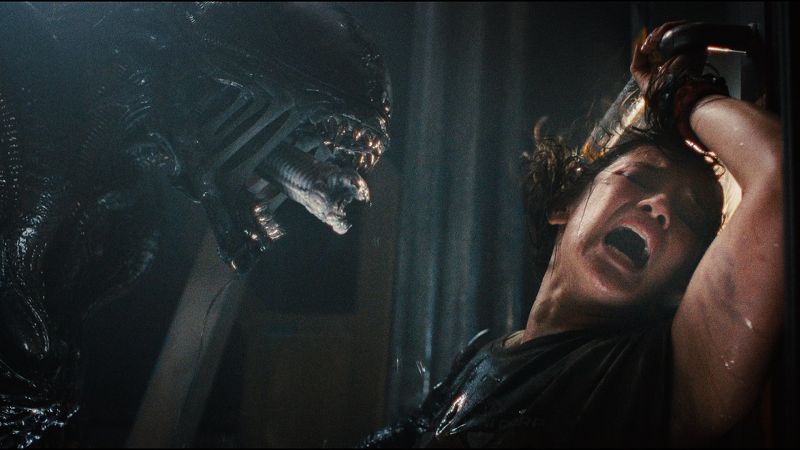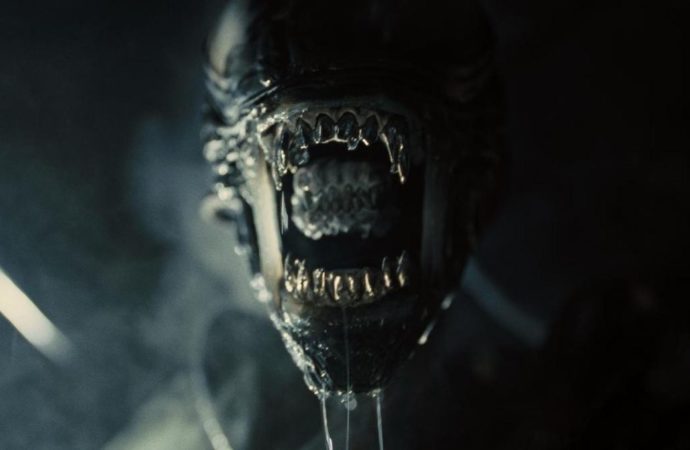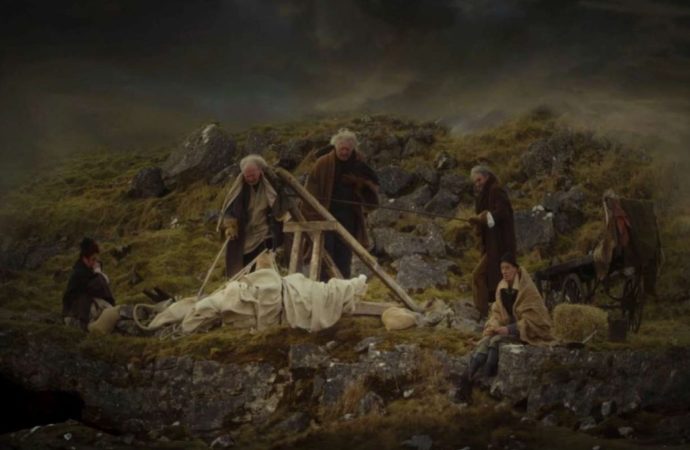The Alien saga is among the most highly rated in science fiction and horror and one of the most abused. After the release of Ridley Scott‘s classic Alien (1979) and its worthy sequel, Aliens (1986) directed by James Cameron, the franchise of the most terrifying alien of the seventh art began to see its decline. The beginning of its decline came at the hands of David Fincher, with the more than failed Alien³ (1992), which would intensify even more with Alien: Resurrection (1997), nonsense that emerged from the mind of Jean-Pierre Jeunet, which more than a fourth installment, seemed to be a parody worthy of the humor of Scary Movie.
Not satisfied with that, 20th Century Fox executives decided to further denigrate the legacy releasing of the two Alien vs Predator installments, whose scripts seemed to have been perpetrated by two teenagers, having stolen their parents’ beer. After these cinematic aberrations hit theatres, fans left the saga for dead and buried.

However, in 2012, hope invaded the hearts of Alien fans when Ridley Scott decided to reclaim his authorship of the saga with Prometheus and its sequel Alien: Covenant (2017). Despite its risk and originality, by introducing philosophical reflections on creation, faith, and the limits of science or ethics, its irregular scripts did not win the approval of most of the fandom. Thus, the illusion of revitalizing the franchise was lost like tears in the rain.
In 2019, Disney acquired the rights to Alien, which would allow it to do with the saga what it has done before with Star Wars, Marvel, Indiana Jones, or Planet of the Apes: make the most of it, wiping the saga clean with a new bet, Alien: Romulus.
On this occasion, Ridley Scott steps aside as producer, passing the baton to Uruguayan director Fede Álvarez, who has shown his virtuosity in the world of horror films on more than one occasion, with films such as Don’t Breathe (2017) or the remake of Evil Dead.
The plot, set between the events of Alien and Aliens, revolves around a group of young colonists who decide to leave their planet to start a better life on a more peaceful one. To embark on their journey, they are forced to plunder the contents of the Romulus, a space shuttle floating adrift in space. What was originally intended to be a quick and easy mission quickly turns into a bloody and agonizing struggle for survival, avoiding at all costs becoming fodder for the xenomorphs that inhabit the ship’s depths.

Cailee Spaeny is being attacked by an alien.
Fede Álvarez creates a tremendously agonizing and tense atmosphere without overusing or resorting excessively to shocks and gore, a characteristic very present in his horror films. The director uses classic resources typical of the best thrillers to trap the viewer, keeping all five senses on the screen.
The film’s superb technical quality enhances this atmosphere of anguish. Álvarez has chosen to prioritize practical effects over digital ones, employing, for example, animatronics to embody the monstrous xenomorphs, to create a much more realistic and organic experience, closer to that experienced in the first two Alien films. However, practical effects do not imply the total abandonment of CGI, integrated subtly and elaborately. All of this is enhanced by a soundtrack that, while not memorable, manages to give soul to the scenes and, all at once, intensify the tension.

Cailee Spaeny and David Johnsson in Alien: Romulus.
A curious and remarkable element of Alien: Romulus is its cast, younger than in the previous films, which is a useful tool to attracting new generations to the saga, making them empathize more with the characters by seeing themselves reflected in them. As in the other Alien productions, the cast is led by a woman, here Cailee Spaeny as Rain Carradine. Spaeny gives a more than satisfactory performance, with a character who, despite the memory of Ellen Ripley, manages to generate solidarity and a certain closeness. She is joined by David Johnson, who gives a magnificent performance as Andy, a robot who, throughout the film, changes his personality and thoughts according to the circumstances.
However, in cinema, not everything is a good technical arsenal and good performances, since the whole is sustained by the script and especially by the main idea on which it is based. In an interview, Fede Álvarez was asked what would be his hallmark in Alien: Romulus, considering that all the directors who worked on the saga offered their own vision and personal brand. The Uruguayan director answered that he did not focus on delivering a brand identity in his film, but, in the end, that is precisely his main problem.

Fede Álvarez on the set of Alien: Romulus.
The story of Alien: Romulus draws from the first two installments of the saga, both the one directed by Ridley Scott and the one by James Cameron, with two allusions to Prometheus and Alien Covenant, basically focusing on offering a generic Alien film, with situations and plots that are familiar or even identical for fans of the saga. Throughout the film, there are numerous allusions, both visual and conceptual, to the two films it takes as references: shots, dialogue, and situations that are reminiscent of the two fan-favorite films, which are evidence of the director’s rejection of risk and the possibility of providing a novelty for the fans. At the end of the screening, one has the sensation of having watched a collage made from the most memorable shots and sequences of Scott and Cameron’s works, resulting in a merely entertaining film full of familiar situations, deeply predictable and lacking in imagination.
More than a film, Alien: Romulus is a theme park attraction of the Alien saga, a visual experience with a well-calculated fan service that seeks to make die-hard fans feel at home and recall the most terrifying and thrilling scenes of their favorite installments, even to the point of feeling the sensation of meeting an old friend, in short, that and nothing more. The problem with today’s cinema is not the abundance of sequels, prequels, or spin-offs, but the lack of risk and desire for innovation shown by their creators when conceiving them. Ridley Scott undertook a risky task with Prometheus and Alien: Covenant, which, although they did not turn out as expected, gave the franchise a breath of fresh air and a completely new and original perspective.
Alien: Romulus is not a cinematic work, but a product without identity or personality, a work of craftsmanship that drinks from what worked in the past and is engendered with the sole purpose of seducing old fans who thought the saga was lost, offering them the same as before, as well as the new generations, using a much younger cast to introduce them to the saga and awaken their interest and curiosity. Alien: Romulus is an easy seduction tool and a passing entertainment, whose fame will fade with time.
In cinema, as in many fields, what doesn’t add up, subtracts…







No one has posted any comments yet. Be the first person!